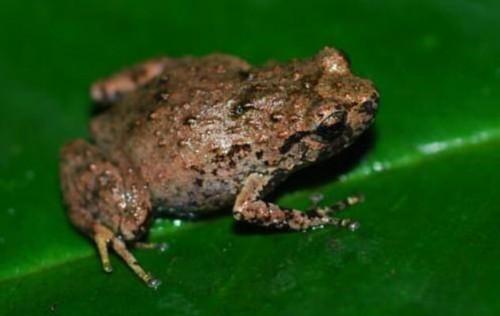According to the British "Daily Mail" reported on March 4, Yale University researchers predict that at present, human beings continue to expand the land use area, about 30% to 50% of the biological habitat has been occupied, and as many as 1700 species will be endangered by 2070.
Scientists are currently combining information on the geographic distribution of about 19,400 species worldwide and habitat change, and the results show that as many as 1,700 species of amphibians, birds and mammals will face extinction due to the loss of natural habitats by 2070.

Ecologists at Yale University compare the areas most likely for human expansion to 19,400 species habitats by studying the impacts of land-use change on future biodiversity (i.e., plant and animal diversity in specific habitats), while comparing the areas most likely for humans to expand with 19,400 species habitats, based on real-world factors such as population growth and global socioeconomic changes that could lead to increased land use. The researchers found that 886 species of amphibians, 436 species of birds and 376 species of mammals will lose their natural habitat and are on the verge of extinction.
The study also suggests that species whose habitats are located in Central Africa, East Africa, Central America, South America and South-East Asia, such as the Bighorn Donkey Antelope in South Sudan, will be exposed to widespread habitat loss and a more serious threat of extinction. It is predicted that over the next 50 years, the range of natural habitats in all these countries will shrink by about half.
The potential expansion path represents the "reasonable expectation" of future social development, demographic structure and economy. Walter Jetz, a professor at Yale University, said the study linked these plausible future projections to their impact on biodiversity by analyzing the impact of political and economic decisions on changes related to global land cover — and how this could lead to a reduction in the range of species habitats around the world.
Professor Jets cautioned against taking it for granted that these threats only appear in a single country. The impact of the sharp decline in the number of species on ecosystem functioning and human quality of life is irreversible, so humans should share the responsibility for conservation. (Intern Editor: Ma Yan Reviewer: Liu Yang)